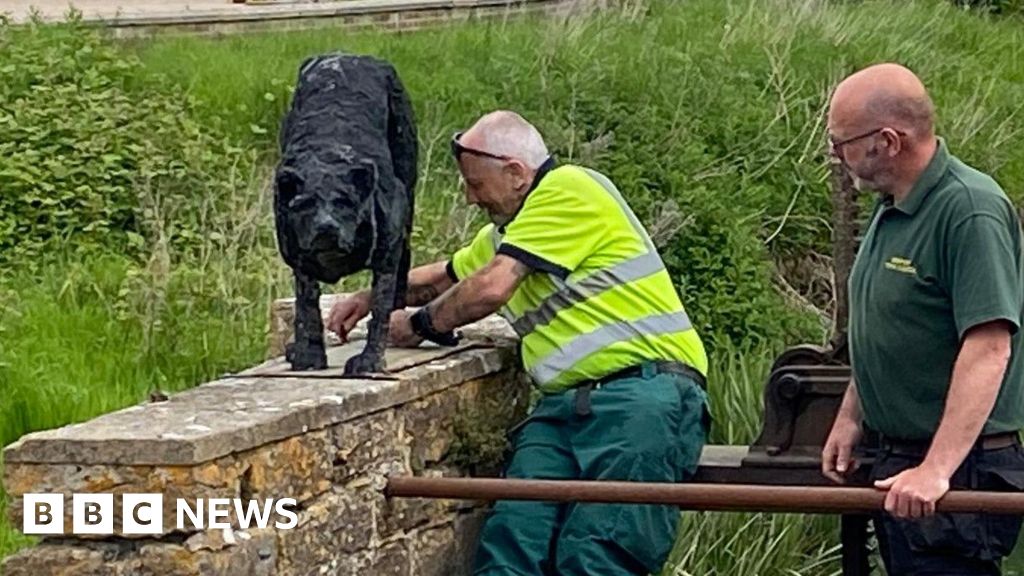ASHEVILLE – Tropical Storm Helene took many things from the Western North Carolina community, including the ability to take furry friends to city, county and privately owned dog parks.
Now on the minds of many dog owners with increasingly antsy pets are potential environmental hazards that may harm their canine friends through something as simple and crucial as a walk around the neighborhood.
Dr. Tina Wismer, senior director of toxicology at the ASPCA Animal Poison Control Center, told the Citizen Times that, while she couldn't speak to exact toxins and diseases that may be present in WNC, certain concerns do arise in these situations.
“If we still have standing water, we're going to want to try to avoid that if possible. The water itself could be contaminated, especially with bacteria.”
In particular, Wismer mentioned leptospirosis, E. coli and salmonella. Blue green algae, which Wismer described as appearing similar to green paint in standing water, was another potential risk, with compounds that can cause seizures and liver failure.
The good news is that these contaminants aren't absorbed easily through the skin — though you should rinse your dog's paws with clean water if they do come into contact with standing water. The bad news, Wismer said, is that even in areas where standing water has dried, health hazards may still exist.
“When those little puddles dry up, the bacteria that is in there can be inhaled and potentially cause sneezing, and potentially things like pneumonia,” Wismer said. “We can also see some funguses that live in the soil that will get churned up and inhaled, and those can cause problems in our pets.”
Unfortunately, the best way to avoid this contact is to avoid areas where floodwaters have evaporated, leaving dusty sediment and potential contaminants in their wake.
In addition to immediate concerns, Wismer said many vets expect several issues to arise in dogs 4-6 months out from a disaster like Helene.
“We see an increase in things like heartworm disease and other mosquito borne diseases, and intestinal parasites, because some of those will live in the soil, and then if the dogs are sniffing around, licking the ground, they can get infected that way.”
Because of this risk, Wismer said keeping up with deworming, heartworm prevention and tick control are all particularly crucial for dog owners following serious flooding.
After the storm, not back to business as usual
Of course, to anyone living in areas flooded by Helene, avoiding walking the dog around the neighborhood indefinitely isn't ideal, particularly with a severe current shortage of dog parks. All public dog parks in Asheville, Fletcher, Mills River and Jackson were closed — if not destroyed completely — by Helene. However, Asheville bar and dog park Wagbar reopened Oct. 6, and has remained active on social media with updates since.
An Oct. 6 post informed the public of free bottled water and water for dogs , as well as a still-functioning dog park that “looks good as new.” Through Oct. 13, the bar is open 1-7 p.m. to humans and cooped up dog friends.
As in the case of many Asheville area establishments, Wagbar hasn't just gone back to business as usual. The bar is giving back to the community with dog food and cases of water for anyone in need of supplies, which are available at the bar.
The ASPCA, too, is offering assistance to pet owners for post-Helene recovery, with an animal assistance hotline available from 7 a.m.-7 p.m., seven days a week at 888-808-0810. The organization also has offered help in animal search and rescue efforts in WNC and provided pet food and supplies to those in need.
Susan Anderson, director of ASPCA Disaster Response, spoke about the importance of our furry friends in a recent news release.
“In times of crisis, people often turn to their pets for comfort – they play a vital role in our lives and it is important to safeguard their health and welfare as much as we possibly can.”
Iris Seaton is the trending news reporter for the Asheville Citizen Times, part of the USA TODAY Network. Reach her at iseaton@citizentimes.com.
Source link








